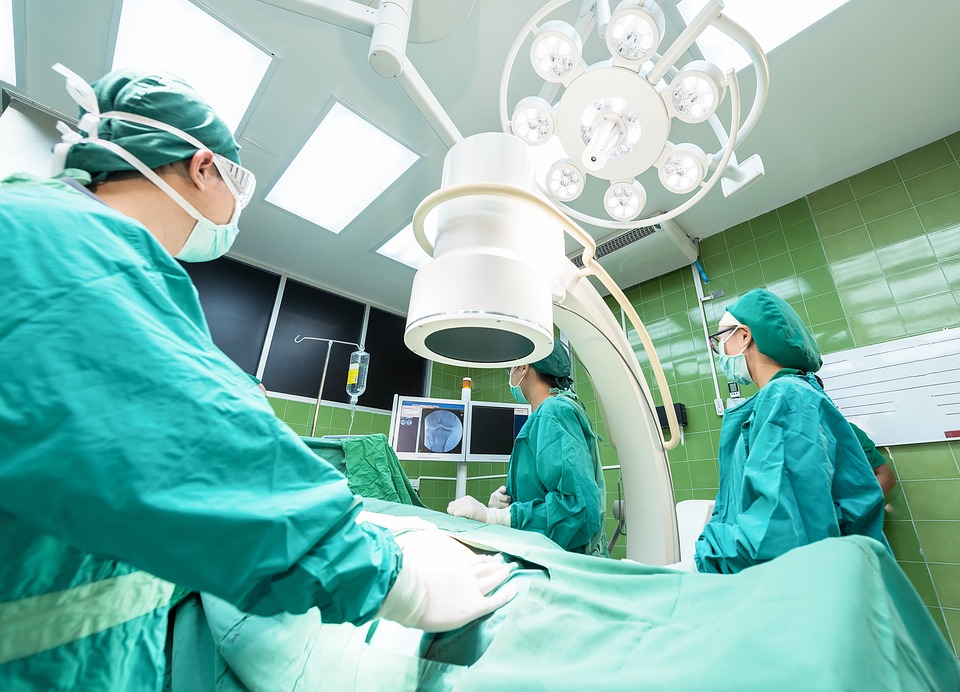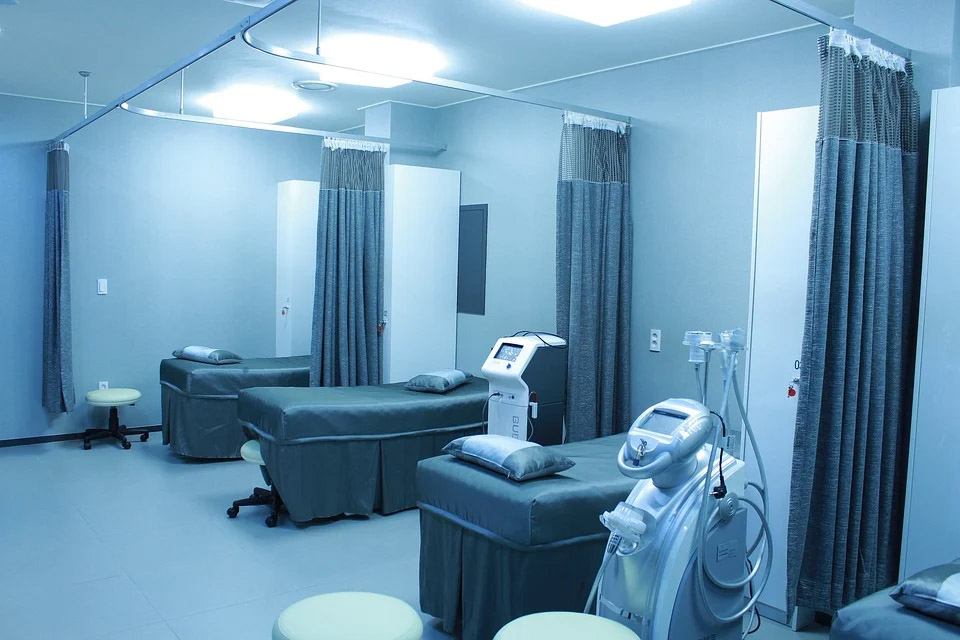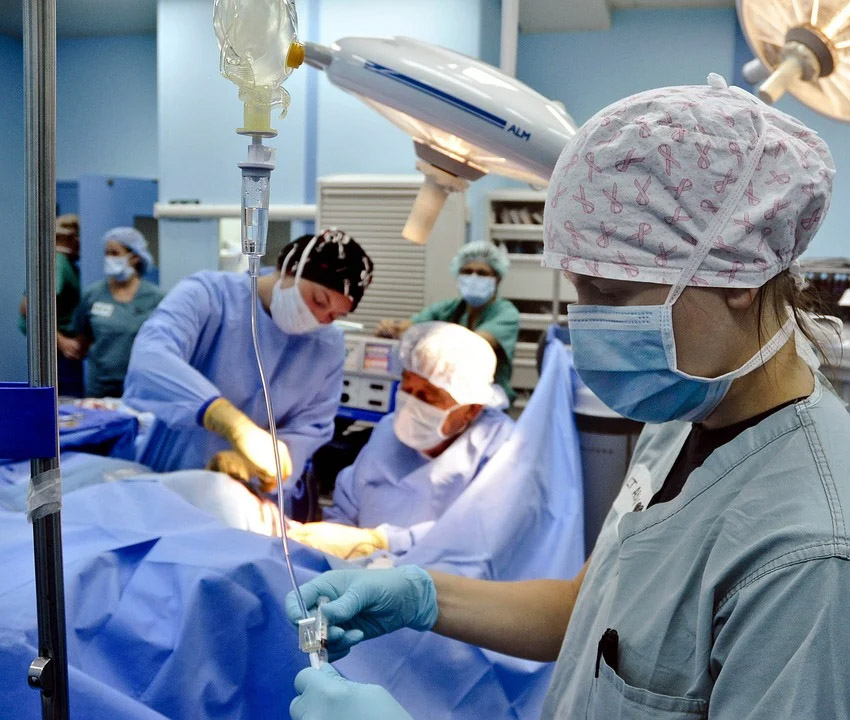Knowing when an injury requires immediate medical attention and knowing when it can be cared for at home is not always black and white. Many factors should be taken into consideration when you are deciding whether to treat an injury at home or whether it should be looked at by a doctor.
It is important to add that if you have an injury and you are not sure whether or not a visit to the doctor is warranted, it is best you go anyway and seek medical care. For most people, the uncertainty of not knowing whether or not an injury is serious is enough to give them considerable anxiety.
This page will tell you how you can know if your injury requires immediate medical attention, as well as a few symptoms that may indicate a health concern. Treating severe injuries immediately is very important. If you sit around and allow an injury to worsen, there are a number of complications that can arise.
In these troubling times, doctor’s appointments are hard to come by; the COVID-19 pandemic has significantly reduced the healthcare industry’s ability to see everybody. However, emergency GP’s and walk-in centres are still functioning, as are hospitals, so no matter what your problem, providing it is of concern, you will be able to get treatment.
Here is how you can know whether or not an injury requires immediate medical attention.
Nature of Injury
The first thing to consider when making the decision to seek medical care is the nature of your injury. Even small injuries can be very painful, and it is very easy to think an injury is much worse than it really is. Most times, you can treat your injuries without a medical professional’s help.
If you are uncertain about your injuries and not sure if you need to visit the emergency room, you should ring an out of hours medical service and speak to a nurse. However, if you suffer any of the following injuries, you must seek medical care urgently.
1. Head Injuries
Head injuries can become severe, very quickly. The problem with head injuries is that the internal symptoms may not become immediately obvious, and they can result in significant bleeding, swelling, and internal injury. Head injuries should never be treated at home unless it was a slight tap or bang.
If, however, a patient who has had a seemingly insignificant head injury begins to exhibit symptoms such as vomiting; seizures; convulsions; confusion; trouble waking up; restlessness; numbness; weakness, or serious headaches, an ambulance must be phoned or they must be brought to a healthcare provider immediately.
2. Eye Injuries
Eye injuries are very concerning, and most people seek medical attention immediately. It is very important that you do so as if eye injuries are left untreated, the patient can risk losing their eyesight or having their eyesight partially reduced. It is also essential to add that if you begin to see an increased number of dark floaters in your vision or bright flashes in the corner of your eyes, to see a doctor, this could indicate a retinal detachment. A retinal detachment can result in full-vision loss.
3. Burns
When minor, although painful, burns do not have to be seen by a medical professional and can be treated at home. However, serious burns must be seen by a medical professional immediately as they can cause serious and irreparable tissue damage. If a burn occurs on the face, feet, or hands, then it should also be seen by a medical professional.
4. Lacerations
Lacerations can cause heavy bleeding and damaged nerves. Medical care may be needed to stop bleeding and prevent a cut or puncture wound from becoming serious or infected. If a cut introduces a foreign material into your body, you should also seek medical attention; tetanus is a condition that can occur from foreign materials entering the body, and it can become life-threatening very quickly.
The Location of an Injury
The location of an injury is the second thing you should consider. Even if it appears insignificant, an injury that occurs around your vital organs should be seen by a medical professional. Ordinarily, doctors would want to see a wound that occurs on the hands or feet, especially a puncture wound.
There are many tendons, blood vessels, and nerves in your hands and feet, all packed into a small space. Injuries occurring to these areas can cause significant damage and a potential loss of function. Equally, a wound that occurs near a joint should be seen by a medical professional.
Wounds that occur in your face, especially if it is a puncture wound, should be treated immediately. There are structures in your face that must be protected, and in addition, a wound to the face can cause cosmetic problems, such as permanent scarring and deformation.
The symptoms that are associated with your injury should be considered, as well. Needless to say, most wounds involve pain and bleeding; if the pain is intolerable and the bleeding profuse, phone an ambulance. If the wound is significantly painful, this is indicative of an underlying problem and must be seen by a doctor. If numbness occurs, this may be an issue with your nerves. These injuries have to be treated by a doctor and cannot be treated at home.
Origin of Injury
Another variant that should be factored into your decision to seek medical care is the origin of your injury. A wound that has occurred that may become contaminated with dirt, debris, or other materials, are at high risk for infection and should be treated by a medical care provider.
An example would be an injury that occurs from a rusty nail – a rusty nail is very likely to be contaminated, and the injury will very likely become infected. An injury, small or large that occurs by something that has rust, dirt, or feces on must be treated by a medical professional right away.
Tetanus, as mentioned previously, is a severe disease that can wreak havoc on your nervous system and is caused by bacteria entering your body through an open wound.
In addition, any injury that occurs as a result of a bite that breaks the skin, whether human or animal, should be evaluated by a medical care provider. The mouths of both humans and animals carry many pathogens and organisms that can cause an infection.
Unrelated Symptoms
Even if you have not had an injury, some symptoms may occur that could be a sign of more serious health problems, especially if you are an older person with pre-existing health issues. Should any of the following symptoms occur, after an injury, or when no injury has occurred, you must seek medical attention as soon as possible:
1. Wheezing or Shortness of Breath
Wheezing and shortness of breath can be indicative of a much more serious health condition and could be a sign of; asthma; COPD; being overweight; cold; chest infection; flu virus; COVID-19; panic attack. You should see a medical professional if it has come on suddenly; it gets worse when you lie down; is worse after physical activity; you have swollen ankles.
2. Chest Pain
Chest pain, in most cases, is quite normal and is nothing to be concerned about, being that it is usually just a result of muscular injury or not stretching before exercise. However, with that being said, chest pain can, in some instances, be indicative of a much more serious problem. There are many possible reasons for chest pain, and while it is unlikely, they could be heartburn, anxiety, strain, panic, infection, pneumonia, shingles, heart attack. If chest pain has been persistent, that comes and goes, or has come and gone; you should contact a medical professional.
3. Loss of Balance
Sudden fainting or loss of balance can be indicative of a serious health problem and should be treated as fast as possible. It could occur as a consequence of an allergic reaction; head injury (concussion); brain swelling, or a fever. A sudden loss of balance should be addressed immediately as many potential causes could be detrimental to your health. It may also occur as a result of low or high blood pressure.
4. Severe Pain
Severe pain occurring suddenly could be a sign of a serious underlying problem. Pain rarely occurs unless the injury has occurred, so if you cannot remember if an injury has occurred, this is something that should definitely be seen by a medical professional to rule out a more insidious cause.
5. Paralysis
Paralysis occurring is a medical emergency. Especially if it happens without any preexisting conditions. Paralysis warrants an ambulance being phoned immediately. If not acted on quickly, paralysis can result in full paralysation of the area affected.
6. Confusion, Altered Mental States, Slurred Words
Confusion, altered mental states, or slurred words can be indicative of a brain injury or a head injury (concussion). If you, or anyone around you, begin to exhibit these symptoms, an ambulance should be urgently phoned. It may also be indicative of a stroke, which is a medical emergency.
7. Heart Palpitations
Sudden heart palpitations is another medical emergency that must be treated urgently. There are many reasons why heart palpitations may occur, with some harmless and others serious. If they occur after having taken medication, this may be quite normal. Heart palpitations should always be taken seriously, as they can be a serious health problem. If you have not taken any medication and have no history of problems with your heart – contact an urgent care provider immediately.
Transport to Hospital
Your transport to the hospital will likely be one of two ways; ambulance or car. The nature of your injury should determine whether or not you should opt for the former or the latter.
If you have suffered paralysation or any injury that hinders your normal movement, you should wait for an ambulance to arrive, so no further injury can occur. If, however, your injury does not affect your movement and the journey to the hospital is not far, yet the ambulance may take a while, you should travel by car.
If you are uncertain whether or not you should wait for an ambulance or bring your loved one into the hospital by car, then contact an urgent care provider and ask for their opinion. Suppose you are the one who has been injured or is suffering from negative symptoms associated with an injury. In that case, you should never attempt to drive yourself into the hospital, and unless it is a non-life-threatening injury, in which case, you can do precisely that.
Home Treatment
If, after all of the things mentioned on this page, you decide that your injury does not warrant immediate medical attention, you should care for it yourself and ensure you take proper care so that your injury heals. No matter how an injury occurs, if it is open, you must wash it out; the best way to wash out a wound is to put it under a running tap or wash it with saline solution. As long as your tap water is clean, however, tap water will work just fine.
Once you have cleaned out your wound, you should cover it with a small bit of antiseptic or antibiotic ointment and plaster it up or bandage it. There is contention when it comes to antiseptic being applied to wounds, as some say that they can cause injury to tissue, or can be extremely painful, but this is down to the discretion of the patient.
If you do decide to care for your injury yourself, keep an eye on it. If the injury becomes red or swollen, or pus drains from a wound, seek medical attention. Equally, if numbness occurs, it should also be checked out by a doctor, as these things can be indicative of a more serious internal injury or infection. Medical attention under these circumstances must be sought.
Now, with the help of this page, you should be able to make an educated decision when it comes to whether or not an injury warrants immediate medical attention. You shouldn’t allow a serious injury to go untreated, since this can be a massive risk to your health. Act responsibly, think carefully, and make thoughtful decisions.







